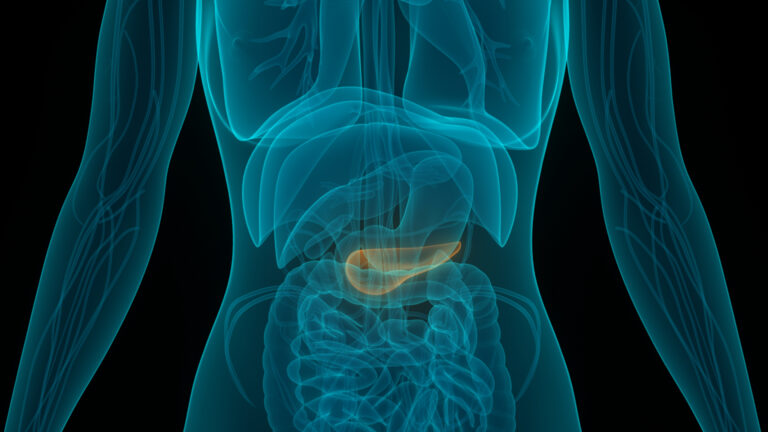
Early Symptoms of Pancreatic Cancer

Pancreatic cancer is one of the most deadly forms of cancer, with a five-year survival rate of only 9%. This is in part because pancreatic cancer often goes undetected until it has reached advanced stages. However, some early symptoms may indicate the presence of this disease.
Early Signs and Symptoms
Recognizing the early signs and symptoms of pancreatic cancer can significantly aid in early detection, which is crucial for improving treatment outcomes. Often, symptoms may not be apparent until the cancer is in an advanced stage, but some early indicators can include:
- Jaundice: A yellowing of the skin and eyes can be one of the first noticeable signs.
- Abdominal and Back Pain: Pain in the upper abdomen that extends to the back is a common symptom.
- Weight Loss and Poor Appetite: Unexplained weight loss and a lack of interest in eating.
- Nausea and Vomiting: The blockage or pressure from the tumor can lead to nausea, vomiting, or indigestion.
- Changes in Stool and Urine Color: Light-colored stools and dark urine may indicate a bile duct blockage.
- New-onset Diabetes: An unexpected diagnosis of type 2 diabetes or worsening of existing diabetes can be linked to pancreatic cancer.
It’s important to consult a healthcare professional if any of these symptoms persist, as they can also be indicative of conditions other than pancreatic cancer.
Jaundice and Related Symptoms
Jaundice is often one of the first and most noticeable symptoms of pancreatic cancer, resulting from the buildup of bilirubin in the blood. It is characterized by a distinct yellowing of the skin and the whites of the eyes. The liver’s inability to process and eliminate bilirubin effectively can also cause itchiness and darker-colored urine.
In the context of pancreatic cancer, the tumor may obstruct the bile duct, preventing bilirubin from being excreted through the gastrointestinal tract as it usually would. Individuals may also notice their stools becoming pale or clay-colored owing to the lack of bilirubin reaching the intestines. Accompanied by these related symptoms, Jaundice necessitates prompt medical evaluation to determine its underlying cause and initiate appropriate treatment measures.
Nausea and Vomiting
Nausea and vomiting can signal the presence of pancreatic cancer, especially when these symptoms persist without a clear cause. This discomfort might not be directly linked to eating and can occur spontaneously.
As the tumor grows, it may press against the stomach or other parts of the digestive tract, disrupting normal digestion and causing these symptoms. For some individuals, the severity of nausea and vomiting can lead to dehydration and significant weight loss, further complicating their overall health. Early intervention and diagnosis are key to managing these symptoms and addressing the underlying cancer effectively.
Diabetes
The development or sudden worsening of diabetes in adults can sometimes signal an early sign of pancreatic cancer. The pancreas is crucial in regulating blood sugar levels by producing insulin. A tumor in the pancreas can interfere with insulin production, leading to diabetes. Symptoms of new-onset diabetes may include increased thirst and urination, fatigue, blurred vision, and unexplained weight loss.
While these symptoms can be indicative of diabetes alone, their sudden occurrence without a clear cause, especially in conjunction with other symptoms listed here, warrants a thorough examination for pancreatic cancer. Individuals who experience new or worsening symptoms of diabetes should discuss these changes with their healthcare provider, as they may necessitate further testing for pancreatic conditions, including cancer.
Fatigue or Abnormal Physical Weakness
Unexpected and persistent fatigue or general physical weakness that does not improve with rest can also be an early sign of pancreatic cancer. This type of fatigue is profound and limits one’s ability to perform daily activities. Unlike normal tiredness that resolves with rest, this symptom persists and often coexists with other signs of the disease. Recognizing this as a potential early warning can prompt earlier diagnostic investigations, potentially leading to a timely diagnosis.
Gallbladder or Liver Enlargement
An enlargement of the gallbladder or liver may be associated with pancreatic cancer, particularly if the tumor blocks the bile duct. This blockage can cause bile to accumulate, leading to an increase in the size of these organs. The enlargement might not be accompanied by pain, making it a less noticeable symptom for those affected.
It can sometimes be identified by a healthcare professional during a physical examination or through imaging tests. This symptom is particularly significant because it can indicate that the cancer is affecting the normal function of other organs in the vicinity of the pancreas. Early detection of changes in the size of the gallbladder or liver can play a crucial role in diagnosing pancreatic cancer and assessing its advancement.
Blood Clots
Blood clots can sometimes manifest as an early symptom of pancreatic cancer. Individuals may develop deep vein thrombosis (DVT), characterized by forming a blood clot in a deep vein, commonly in the legs. This can lead to swelling, pain, and redness in the affected area. In some cases, a piece of the clot can break off and travel to the lungs, causing a life-threatening condition known as pulmonary embolism, which requires immediate medical attention.
The occurrence of blood clots in pancreatic cancer patients may be related to the cancer’s ability to stimulate blood clotting mechanisms. While blood clots can be caused by a variety of factors, the presence of unexplained clots, especially in conjunction with other symptoms of pancreatic cancer, should prompt further investigation.
When to Talk to Your Doctor
If you experience any of the symptoms mentioned above, it’s crucial to consult your doctor without delay. While these symptoms can often be attributed to less severe conditions, their persistence or severity warrants professional evaluation.
Early detection of pancreatic cancer significantly enhances the effectiveness of treatment. It’s especially important to speak with a healthcare provider if you notice more than one of these symptoms simultaneously or if they progressively worsen.
Remember, your health and well-being should always be a priority, and early intervention can make a critical difference in your prognosis and treatment options. For more information visit Allied Digestive Health.
Footer
© Allied Digestive Health. All Rights Reserved.